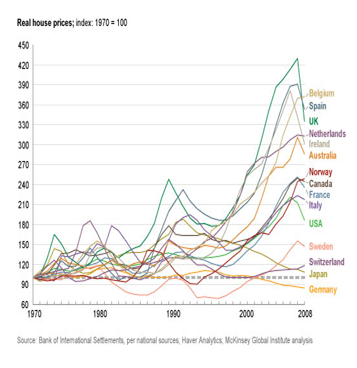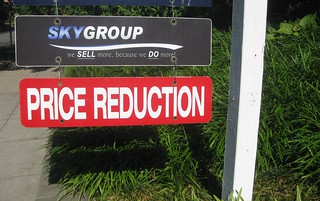Housing Bubbles: What Are They and What Do They Do?
Last week saw the Chancellor, George Osborne, announcing that the recovery for the UK was well under way, and forecast The Office for Budget Responsibility has warned of an approaching housing bubble.
Currently, house prices are set to have risen by around 3.2% over 2013, they predict they will rise 5.2% during 2014 and 7.2% in 2015.
Whilst this may not sound like a lot, it is a substantial amount when you are dealing with a house worth many thousands of pounds, as well as the fact that wages are not rising with inflation.
What Is A Housing Bubble?
A “Housing Bubble” is a term given to the phenomenon of housing prices rising or inflating at a level which is fuelled by a combination speculation, demand and the use of historical data, i.e. the trends of the last few years, to predict what will happen in the future.
Low levels of interest can encourage housing bubbles to grow, as there are fewer costs to repay the finances necessary to pay for a house. This is also the case with the availability to access cheap forms of credit.
These two methods of funding, and their availability can often help to fuel a housing bubble as it allows people to consider the prospect of buying a house, when they normally they would be priced out of the market.
 Why Does A Housing Bubble Create Fear?
Why Does A Housing Bubble Create Fear?
There are a number of reasons why a housing bubble will inspire fear and panic.
Houses Are Essential – This is probably the most fundamental aspect of the problem of housing bubbles.
Everybody needs somewhere to live. Even if you rent your property, someone else will own it.
The major problem is when housing prices are over-inflated and the market begins to tumble, as buyers will be repaying more than the current worth of their house. If interest rates are higher, this can be even more of a problem, as you are repaying more money than you originally borrowed.
Stock Markets – the stock markets thrive on predicting the future. It is all about buying shares and then seeing their value rise, before selling them on or reaping the rewards as companies pay shareholders dividends.
Any signs of a housing bubble can trouble the market because so much of the complexity of how the stock markets work. Companies who build houses and companies who provide the finances for the purchases are all traded on the stock markets.
Above all it affects investor’s confidence in the whole market, which means some begin to sell their shares and this causes a chain reaction of other investors wanting to cash in before their shares lose value. This can cause the economy to shrink and devalue the currency, meaning it is worth less when trading with other countries. In January 2013, the economy shrank by 0.3% which knocked hundreds of millions of pounds from the value of the UK economy.
Previous Experience – You may have seen stories about the situation in Spain with many houses being left vacant as there is not enough demand for houses. There were other factors in the collapse of the Spanish housing market, but housing bubble was a major factor. Further afield in America the problem was just as bad, with many housing complexes being left as ghost towns.
Funding for Lending Scheme
The Bank of England has acted to relieve fears of a housing bubble by cutting its Funding for Lending scheme.
This says on a basic level that the housing market is reacting in a more organic way than expected and they are acting before any sort of artificial price hike or bubble can take hold.

Category: Housing






